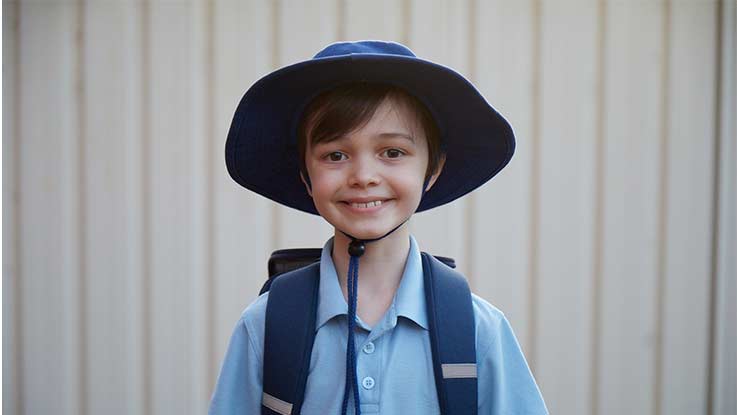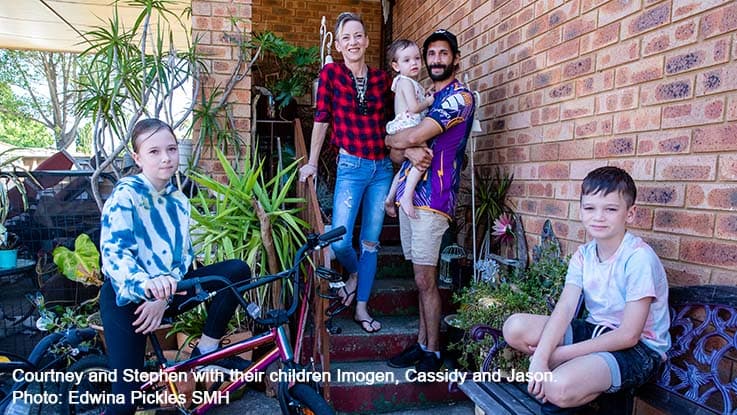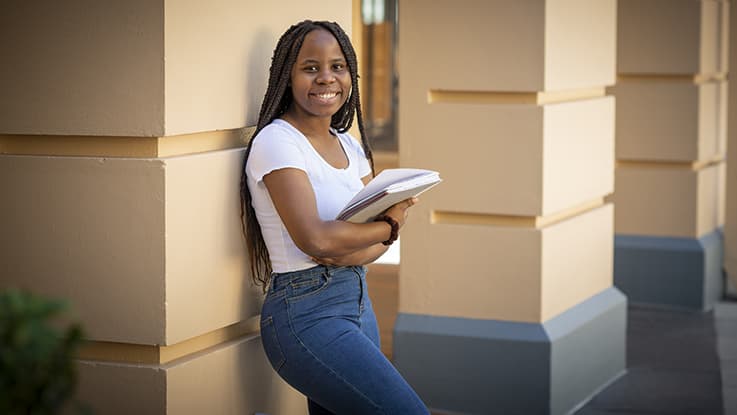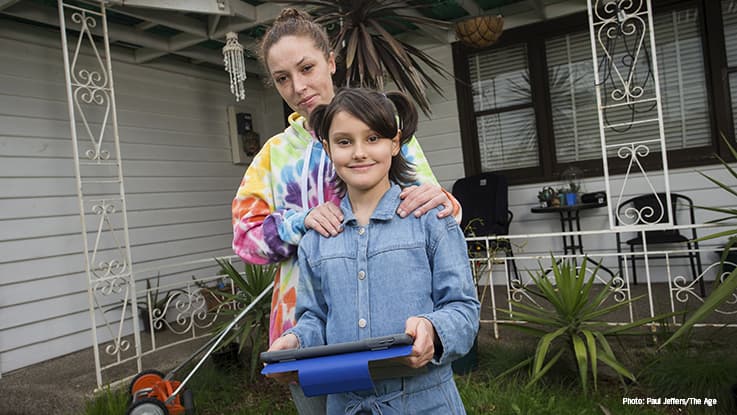
Wendy Harmer Found Solace at School
As a child, Wendy Harmer found solace at school. She hopes that all children can get the same chance.

In most Australian family photograph albums there’s a treasured snap of the little ones on their first day of school. Standing up straight and proud in a uniform that’s just a wee bit too big. Faces scrubbed, hair neatly combed or scraped into a ponytail with a ribbon.
Small, determined fists tightly clutch a shiny, new backpack filled with books carefully covered in plastic and a pristine lunchbox crammed with nutritious tucker and special treats. So much excitement. So much promise. So much expectation.
I don’t have a photograph of that “first day”. My late father was a schoolteacher in country Victoria and our family of six lived in Education Department housing. For years our residence was in the school grounds, so the classroom was just another room. At one time, even in the very same weatherboard building. Imagine walking out the back door, turning left, three steps and you’re in school.
My mother recalls: “As a toddler you’d just wander off into the classroom when I was busy with the washing or something. Phillip and Noel did too, and your father would bring them home at lunchtime. Sometimes I’d find Helen there in front of the grade six boys with no nappy on.”
So I grew up in a schoolroom and count myself the luckiest of children. I loved it when the other kids went home and I could sit at the empty wooden desks in the front row, swinging my little legs and poking around in the inkwells. The chalkboards, library books, bats and balls, and the arts and crafts cupboards were all for me.
During the summer holidays when the school was shut, I’d round up the neighbourhood kids to play “schools” in our garage. I cast myself as the headmistress, of course.

So I grew up in a schoolroom and count myself the luckiest of children. I loved it when the other kids went home and I could sit at the empty wooden desks in the front row, swinging my little legs and poking around in the inkwells.
My mother, with four children by the time she reached her 21st birthday, attempted to take her life when she was 27 years old and I was 10. She survived, but it left Dad, at the age of 33, as a single parent to the four of us. Our home life descended into mayhem. Dad held down his job as a teacher, but the fridge was often empty of food, power cut off and furniture repossessed as bills went unpaid.
In my early teens, thankfully, the school bus was there every morning to take me to a safe place. There I found the routine I craved. A calendar to set sail by. Loving friends and their “normal” families. Teachers who saw me, counselled and encouraged.
Saved by the bell
For the one in six Australian children living in poverty, school can also be the beginning of a long and arduous journey to keep up with their classmates. Years which hold so much promise fade because books and technology are unaffordable, excursions are missed and that lost backpack, lunchbox and too-small sports uniform never replaced. This is the reality, right now, for 1.2 million children in Australia.
As the statistics tell us, children experiencing disadvantage are, on average, two to three years behind in reading and maths by the time they’re 15 years old. Not all children get an equal start in life. In wealthy Australia, they should.
Albion Park Rail Public School, south of Wollongong, is home to 382 students. A quarter of them identify as Aboriginal or Torres Strait Islander. Every Monday, The Smith Family sets up shop in a school office and checks in on the 104 children it sponsors through scholarships and various forms of family support.
Deputy principal Romina Maione is recognised nationally for excellence in teaching. She sings the praises of The Smith Family. “It’s amazing,” she says. “It means our students don’t go without. Every single child has a chance.”
She rejects the idea that the “cycle of disadvantage” is inevitable. “We’re all working hard to change that and every family is doing their very best,” says Maione. “Education is the way to succeed.“
And that’s the mantra of The Smith Family: a hand up, not a handout. I am very proud to be a Centenary Champion for The Smith Family as it celebrates 100 years.

Wendy’s story is as unique as any of the stories of the more than 170,000 students supported by The Smith Family.
The Smith Family partners with families today to support children and parents and communities experiencing similar challenges to thrive and achieve their goals.
If this story has raised any issues with you, please contact Lifeline on 13 11 14 or Beyond Blue on 1300 224 636.



